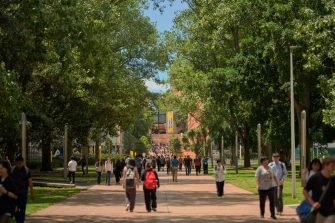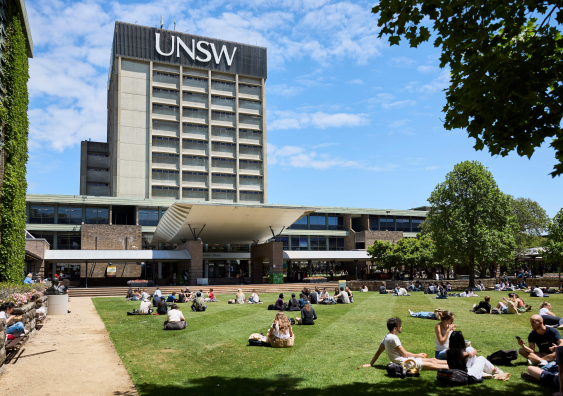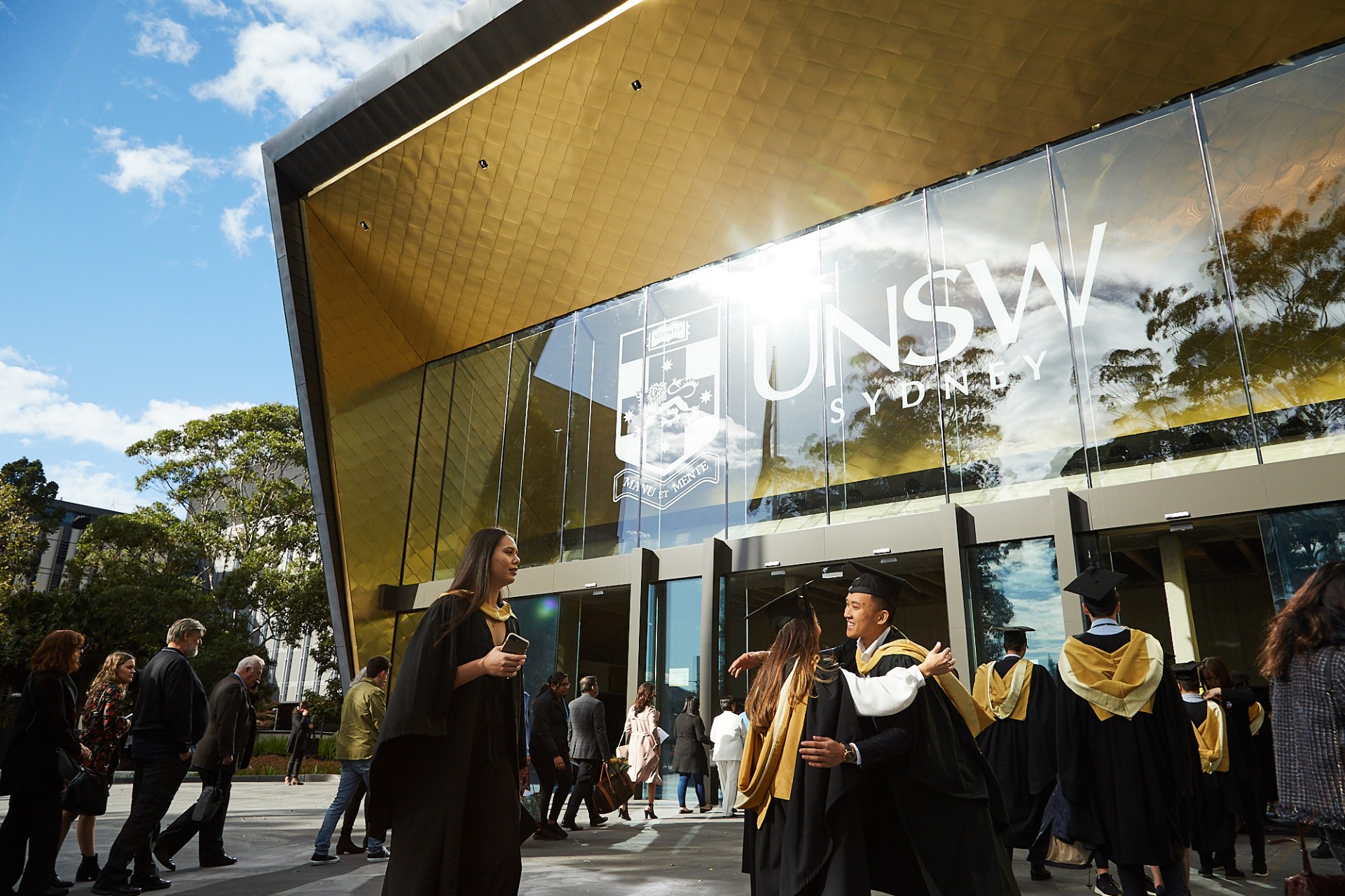The Australian Financial Review newspaper has ranked UNSW first for Career Impact, second for Research, and fourth for Equity in its 2024 rankings of Australian universities.
Success at university goes beyond achieving high grades – it's about preparing for a lifetime of opportunities. UNSW Sydney continues to cement its reputation for preparing students for successful careers.
For the second year in a row, the Australian Financial Review’s Best University Ranking has placed UNSW at the top for producing the most employable graduates in the country.
UNSW placed first for Career Impact, which measures an institution’s success in helping graduates land their dream jobs. The University maintained second place in the Research category and scored highly on Equity, achieving fourth place out of 40 Australian universities.
In the overall score for Best University, UNSW ranked equal third (tied with Monash University).
Career Impact – UNSW Ranked equal first
The AFR’s Career Impact measures the employability and success of graduates once they leave university and get into the workforce. UNSW is ranked equal-first with the University of Sydney.
The score considers graduate outcomes after they finish their course, rates of full-time employment, and it also draws on data from the Australian Tax Office on graduate salaries.
Professor Sarah Maddison, Deputy Vice-Chancellor for Education & Student Experience, said UNSW fostered excellence and the entrepreneurial spirit.
“We love seeing our students channel the theoretical and practical skills they learnt in the classroom into careers with purpose,” she said.
“We’re very proud when our amazing graduates become future leaders, and it’s both exciting and humbling to see our focus on creating Australia’s most employable and career-ready alumni recognised in these rankings.”
Research – UNSW Ranked 2nd
UNSW Deputy Vice-Chancellor for Research & Enterprise, Professor Bronwyn Fox, said the brightest minds were attracted to working at UNSW, where they were nurtured and encouraged to advance human knowledge and understanding.
“Remarkable discoveries happen each and every day at UNSW,” she said.
“You can truly see the positive impact, from our groundbreaking research that leads to medical and healthcare discoveries, to our determination to help the world have access to clean, green energy, and improving access to education.”
The AFR’s Research category looked at both fundamental and applied research. It gathered information on the University’s volume of high-quality publications, collaborations and international connections. It also considered the Australian government’s evaluations of research quality and information on contract research income.
Equity – UNSW ranked 4th
UNSW also scored highly on Equity, ranked fourth overall in the AFR Rankings. This score considers several disadvantaged student groups (including non-English speaking background, disability, Indigenous, low socio-economic status and regional/remote) and analyses how these students fare at their chosen university. Some of the 23 data points analysed include retention, degree completion rates and performance compared to other student cohorts.
Professor Bruce Watson, Pro Vice-Chancellor for Societal Transformation & Equity, said that the high score for Equity underscored UNSW’s commitment to advancing progress for all.
“We are dedicated to empowering every student to reach their full potential, regardless of their background,” he said.
“The diversity within our community enriches UNSW, creating a more vibrant, innovative, and inspiring environment for both learning and working.”
About the AFR Best Universities Ranking
The AFR’s Best University Rankings utilise a methodology that draws exclusively from verified and publicly available sources, which removes the need for data collection and submission by participating institutions. The ranking uses 217 data points on each university, and processes these into 61 measures of university performance. It draws on metrics across four categories: career impact, research, equity and teaching.
The analysis was done by Professor Tim Brown, Adjunct Professor (Research) at Monash University and former professor of statistical data science at the University of Melbourne.
Full results can be found on the AFR website.
Media enquiries
For enquiries about this story please contact Julia Holman:
Tel: 0435124673
Email: julia.holman@unsw.edu.au






